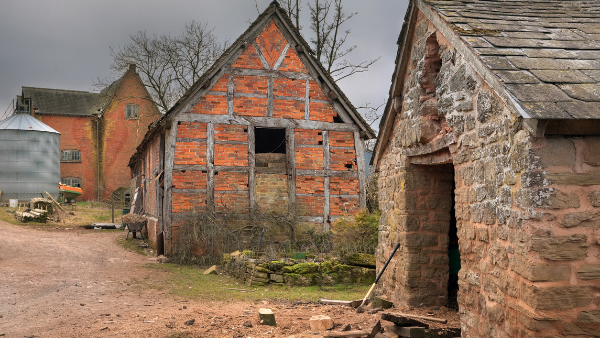Author
Related people
Caroline Baines
Consultant

Written jointly with Katharine Everett Nunns.
In the recent case of Pitman & ors v Hicks [2021] the High Court considered an application by a landlord for permission to appeal an arbitrator’s award, which directed that the costs of the arbitration of a Notice to Repair be borne by the landlord, notwithstanding that the Notice was in part upheld.
In an Order dated 21 July 2021 (the Order) Mr Justice Fancourt refused permission to appeal the award having considered the matter on the papers.
The Court had to decide whether the question raised by the landlord was a question of law, that the Arbitrator had been asked in the original proceedings, because new points cannot be appealed. Although essentially the Arbitrator had been asked that question, the Court determined that it was not a question of law, as required. The only questions of law that could have come about in this case were not ones that the Arbitrator had been asked. Further, even if it had been a question of law, the landlord had failed to satisfy the Court that, on the basis of the findings of fact in the award, the decision of the tribunal was obviously wrong.
Although it is unusual for an Order refusing permission to appeal to be published, Mr Justice Fancourt made specific provision for the decision to be cited in argument in other cases and to be reported.
The landlord served a Case D notice to do work, under Schedule 3 of the Agricultural Holdings Act 1986 (AHA), which was then referred to arbitration by the tenant under article 3 of the Agricultural Holdings (Arbitration on Notices) Order 1987 (the 1987 Order).
The tenant referred, in 4 cases, whether he was liable to do the work, and in the other 4 cases, whether the work was necessary or justified. Then, in the course of the reference, the parties agreed that the Arbitrator should have power to modify the notice to do works by substituting different methods or materials, under article 5(b) of the 1987 Order.
Under section 61 of the Arbitration Act 1996 (the Act), the tribunal may make an award allocating the costs of the arbitration as between the parties, subject to any agreement of the parties. Further, unless the parties otherwise agree, the tribunal shall award costs on the general principle that costs should follow the event (i.e. the “loser” bears the costs of the case), except where it appears to the tribunal that in the circumstances this is not appropriate in relation to the whole or part of the costs.
Upon the basis that a substantial proportion of the works, as specified in the notice, were not ones that the tenant was required to carry out, the Arbitrator found that the tenant was the “winner” and awarded him all of his costs.
The landlord sought permission to appeal the final Arbitration Award as it related to costs.
The Landlord sought the permission of the High Court to appeal the costs aspect of the award upon the basis that the Arbitrator had made an error of law under section 69(2)(b) of the Act.
Sections 69(3)(b) and (c)(i) of the Act respectively require that the question of law was one which the tribunal was asked to determine and, that, on the basis of the findings of fact in the award, the decision of the tribunal on the question was obviously wrong.
The Court pointed out that the outcome of the arbitration reference (i.e. who is the “winner” / “loser”) was a question of fact, not law.
The Court found that the only questions of law that could arise from the award were not questions of law that the Arbitrator was required to decide. The policy of the Act is such that “challenges to evaluative of (sic) discretionary decisions after the event” should be excluded except in very limited circumstances.
The Court went on to determine that even if the above had been a question of law, it was “far from clear that the Arbitrator was wrong in concluding that the Defendant had broadly succeeded, and certainly not obviously wrong.” Mr Justice Fancourt noted that:
“A different arbitrator might have taken a different view and awarded only a proportion of costs, but the Arbitrator correctly had regard to the conduct of the parties more generally before deciding to award the Defendant all his costs.”
The arbitration of a works notice to remedy is never a straightforward affair and will always involve a degree of interpretation of the notices served, and consideration of the practicalities involved in the repairs themselves. These disputes are well suited to arbitration or expert determination before experienced rural surveyors.
The problem faced by landlords is that it is often difficult adequately to particularise the dilapidations, and the requirements for remedy. However, it is the tenant’s right to challenge the notice and to the extent that such challenges are successful, the tenant is likely to be the ‘successful’ party. The extent to which ‘without prejudice save as to costs’ offers were made in this case is unknown, but such offers are often very effective in mitigating cost risk.
As to the application for permission to appeal, perhaps there are no surprises in the decision. A costs determination rarely raises a question of law, let alone one which is “obviously wrong”. However, it is very welcome that the decision was taken to publicise the Order, since (due to arbitration confidentiality) many similar decisions do not see the light of day, and the guidance provided by the Court is helpful.
If you have any questions regarding this article, please do not hesitate to contact Adam Corbin by email or by telephone +44 (0)117 906 9324.